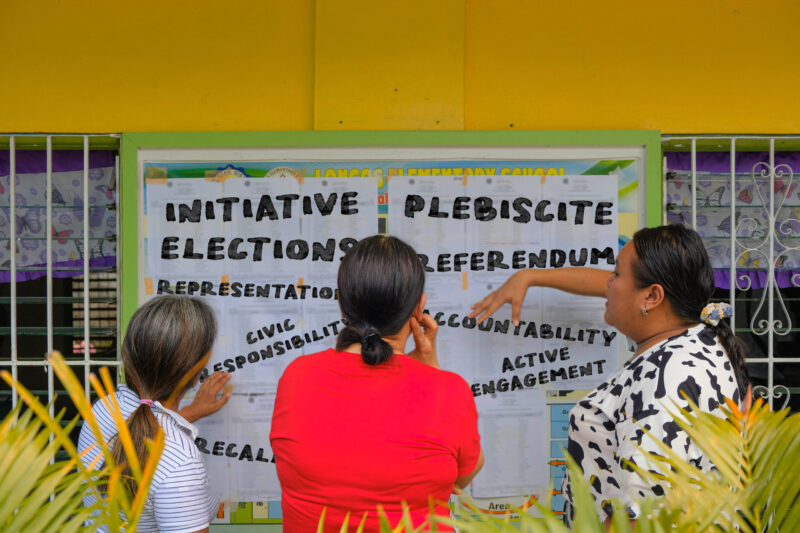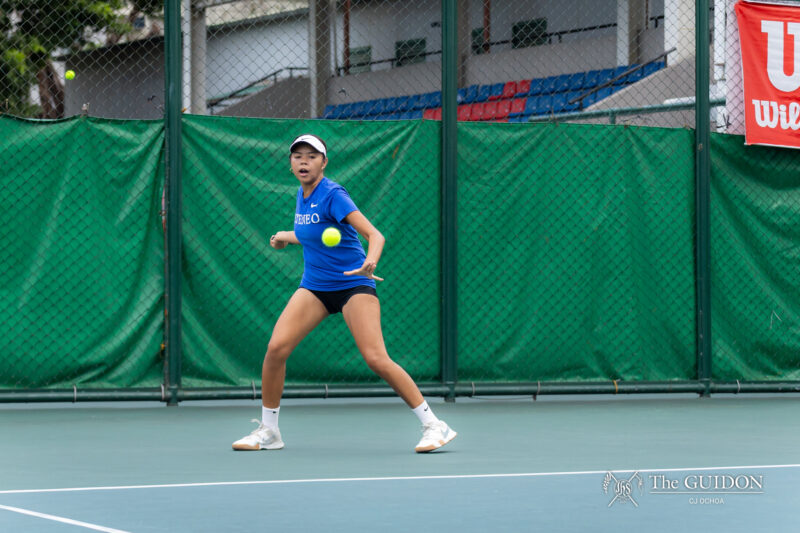Members of the Ateneo community and allied institutions welcomed pilgrims from Lakbay Buhay, a multi-sectoral caravan organized by the Catholic Church to march to the Senate to voice their concerns over the proposed bill.
The caravan began in Cagayan de Oro on May 4, and is set to reach the Senate on May 24. While in Manila, the pilgrims will be given lodging in the Ateneo campus.
Aside from the Ateneo, other organizations such as the Sentro ng mga Nagkakaisa at Progresibong Manggagawa (SENTRO) and the Akbayan Citizens’ Action Party, among others, were present to welcome the pilgrims.
According to University President Ramon Villarin, SJ, the caravan represents a wider struggle. “I think it is only right that we should be part of this endeavor… This is a fight for our soul as a nation,” he said.
“This is a symbolic gathering that I hope will generate some waves out there to keep on pressing for certain values that we hold dear to us, the value for life, especially, in view of this policy on the death penalty,” he added.
Perspective change
SENTRO Secretary-General Joshua Mata said that the welcoming is a “historic event” in the fight against the imposition of the death penalty.
“We have fought a long time ago to kick out death penalty from this country, and now this government is trying to reimpose it, and that is going to be very harmful hindi lang sa mga mahihirap natin kundi sa manggagawa natin at sa marami pang sector (That is going to be harmful not only to the poor but also to the working class as well as other sectors),” he said.
“We feel na dapat na pinagtutuunan ng pansin ng gobyerno natin ang kabuhayan at hindi kamatayan (We feel that the government should put more focus on life and not death),” he added.
Moreover, Sanggunian President Ia Marañon said that the pilgrimage is a change of perspective, noting that campaigns against the death penalty have always been directed towards the elite and the middle class.
“It has always been [about] putting these studies that [show that the death penalty] is ineffective, it is inhumane… It is using a language that the elite and the middle class understand,” she said.
“I think joining this campaign shows that the death penalty is not just something that the middle class and the elite fight against, but it is also something very close to the heart of the marginalized. At the end of it all, sino ba ang naapektuhan? Sila, ang maralita. (At the end of it all, who are the ones affected the most? It is them, the poor),” she added.
‘No farmers, no food, no future’
The pilgrims, coming from various sectors, said that the government’s priorities did not favor their interests.
“Bakit kailangan magpasa ng parusang bitay kung alam naman nating marami pang mga magsasaka ang walang lupa? Repormang agraryo ang dapat unahin (Why is there a rush to pass the death penalty when we know that there are a lot of farmers that still do not have land? Agrarian reform should be prioritized),” said PAKISAMA Vice-President Samuel Fellas. PAKISAMA is a farmers’ interest group.
Fellas also urged the government to hasten the distribution of the coconut levy fund to coconut farmers across the country. The fund, collected from coconut farmers during the presidency of Ferdinand Marcos, is at the center of a case involving San Miguel Corporation Chairman Eduardo “Danding” Cojuangco.
Lastly, Fellas rallied against the Commission on Appointments for rejecting appointments in the Agriculture Department that were beneficial to the farmers.
“Meron sana tayong magaling na Secretary ngayon pero anong ginawa ng mga nasa Commission on Appointments? Inalis ‘yung mga nagmamalasakit sa plant development at agro-forestry. Iyon dapat ang inuuna ng ating gobyerno para sa sector ng mga magsasaka,” Fellas said.
(We would have had excellent Secretaries but what did the Commission on Appointments do? They removed those who really cared about plant development and agro-forestry. Our government should prioritize that for the farmers.)
SOSS Sanggunian Representative Dasha Uy said that the government should focus more on the provision of services which is more effective in reducing crime than the imposition of the death penalty.
“The reason why people resort to [crime] is because they feel like they have no choice, that is the only way to get the things that they need. There are so many other things that the government can do to support them more,” she said.
Restorative justice
The multi-sectoral caravan also clamored for the Duterte administration to focus more on restorative justice instead of just capital punishment.
“Restorative justice is the recognition that the purpose of justice, the purpose of punishment is not really to end life but to…rehabilitate that life aimed at the reintegration of a person in society,” said Sanggunian Vice President Benjamin Alvero.
“Ang pagtanaw natin sa hustisya ay hustisya na may pagkilala sa pagkatao ng nililitis. Naniniwala ako at ng Sanggunian na ang buhay ay sagrado kahit sinuman ang pinaguusapan,” Alvero added.
(Our view of justice is that justice should recognize the humanity of the accused. It is my personal belief as well as the Sanggunian’s that life is sacred no matter who is being talked about.)
Alvero said that the Sanggunian hopes to open spaces for discussion of government policies, such as the death penalty but also the looming issue of federalism.
“Essentially, from the Sanggunian, what the students can expect is, at the bare minimum, the opening of spaces for discussion, and the opening of spaces for the participation of organizations from outside the University,” he said.







